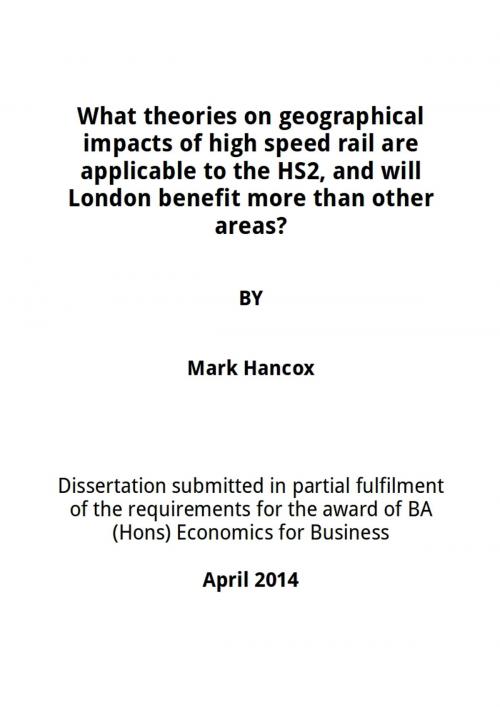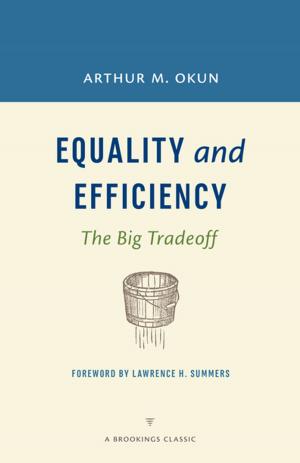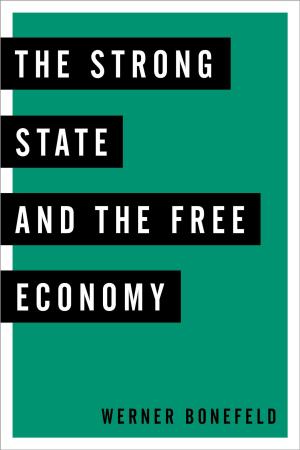What theories on geographical impacts of high speed rail are applicable to the HS2, and will London benefit more than other areas?
Economic Theories of HS2
Business & Finance, Economics, Economic Development, Theory of Economics| Author: | Mark Hancox | ISBN: | 1230000256617 |
| Publisher: | Mark Hancox | Publication: | July 31, 2014 |
| Imprint: | Language: | English |
| Author: | Mark Hancox |
| ISBN: | 1230000256617 |
| Publisher: | Mark Hancox |
| Publication: | July 31, 2014 |
| Imprint: | |
| Language: | English |
This paper looks at existing high speed rail literature and theories on factors which determine geographical impacts of such infrastructure. It aims to determine which theories are applicable to the newly proposed high speed railway in the UK (HS2) by looking at past impacts of the only existing UK high speed railway (HS1), and establish whether London will benefit to a higher degree than other areas along the route. The research establishes the expected changes in wages, employment and business demography for HS1 station areas based on literature and theory, then compares these with actual changes brought by the high speed rail. The main findings include the confirmation that three different factors affect the business demography of an area when high speed rail is introduced in the UK, population density, land prices and size of existing transport infrastructure, though these factors have no significant effect on wages and employment. The paper determines London will gain more total active enterprises with additional business births in the area, while the areas around the proposed HS2 station in Long Eaton (Derby and Nottingham) will gain the most relocating firms should the HS2 project be built. The paper also concludes by questioning whether the benefits of high speed rail is rapidly diminishing due to advancements of technology and whether investment in specific capacity enhancing transport would be a wiser investment for a government, though more research is required on this subject.
This paper looks at existing high speed rail literature and theories on factors which determine geographical impacts of such infrastructure. It aims to determine which theories are applicable to the newly proposed high speed railway in the UK (HS2) by looking at past impacts of the only existing UK high speed railway (HS1), and establish whether London will benefit to a higher degree than other areas along the route. The research establishes the expected changes in wages, employment and business demography for HS1 station areas based on literature and theory, then compares these with actual changes brought by the high speed rail. The main findings include the confirmation that three different factors affect the business demography of an area when high speed rail is introduced in the UK, population density, land prices and size of existing transport infrastructure, though these factors have no significant effect on wages and employment. The paper determines London will gain more total active enterprises with additional business births in the area, while the areas around the proposed HS2 station in Long Eaton (Derby and Nottingham) will gain the most relocating firms should the HS2 project be built. The paper also concludes by questioning whether the benefits of high speed rail is rapidly diminishing due to advancements of technology and whether investment in specific capacity enhancing transport would be a wiser investment for a government, though more research is required on this subject.















